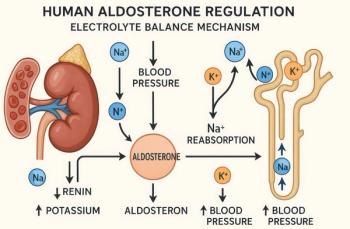
A Requiem for Beta-Blockers to Treat Hypertension?
At the ASH meeting, one could get a pretty good sense of where the beta-blocker hypertension debate is headed.
First of all, when will we get JNC 8? The answer is never. It will be renamed JNC 2013 and released in late 2013. The speakers at the 2013 American Society of Hypertension annual meeting could only speculate regarding the content of JNC 2013.
However, one could get a pretty good sense of where the beta-blocker hypertension debate is headed. The popularity of beta blockers, that is, “traditional” beta-blockers (eg, atenolol), is fading fast. There are strong scientific reasons for this move away from beta-blocker therapy for hypertension.
What has changed between JNC 7 (beta blockers a viable early option for treatment) and data considered for JNC 2013?
1. The committee for JNC 2013 had access to 66 clinical trials evaluating initial drug therapy for hypertension. The data included meta-analyses of beta-blockers versus placebo as well as other therapies. In placebo-controlled trials, regarding outcomes such as all-cause mortality, fatal or nonfatal myocardial infarctions (MIs), fatal or nonfatal strokes, and withdrawal from the study itself, there were no significant differences between placebo and beta-blockers.
2. When a typical cohort was studied (approximating 65-year-olds, 2% cardiovascular [CV] risk, 1.1% risk for diabetes mellitus [DM], and a 1% heart failure risk), quality-adjusted life years were only modestly different between persons treated with beta-blockers versus no intervention at all!
3. The British equivalent of JNC, the National Institute for Clinical Excellence (NICE), released its findings regarding beta-blockers for hypertension and has already recommended that beta-blockers be used only for compelling reasons, such as post-MI care and heart failure (systolic). Why are their indications for beta-blockers so narrow? Evaluations of the evidence by the NICE committee demonstrated the following:
a. Head-to-head comparisons between beta-blockers and thiazides (HAPPY, MRC, MRC-9 studies) found beta-blockers were associated with relative risks (RR) of 1.63 (for MI) and 2.31 (stroke) compared with thiazides.
b. Comparing beta-blockers and angiotensin receptor blockers (the LIFE Study), the RR for strokes and new-onset DM were both 0.75 for ARBs compared with BBs.
c. ASCOT, ELSA, and INVEST compared calcium channel blockers (CCBs) with beta-blockers and ARBs. Again, RR was better for stroke (0.77), unstable angina (0.68), and new-onset DM (0.71) with CCBs.
The final NICE guidelines initiate hypertension therapy with angiotensin-converting enzyme inhibitors/ARBs (persons younger than 55 years) or a CCB (persons older than 55 years or black persons). Step 2 or 3 therapy (if persons are not at target after Step 1) adds a thiazide to a combination of both agents. If that fails, more diuretic therapy is added, but beta-blockers have fallen out of the equation completely (unless indicated for a nonhypertensive indication, such as systolic heart failure).
I will offer more about so-called beta-blockers “plus” (as opposed to traditional) agents (nebivolol and carvedilol) in the next article.
Newsletter
Enhance your clinical practice with the Patient Care newsletter, offering the latest evidence-based guidelines, diagnostic insights, and treatment strategies for primary care physicians.

































































































































